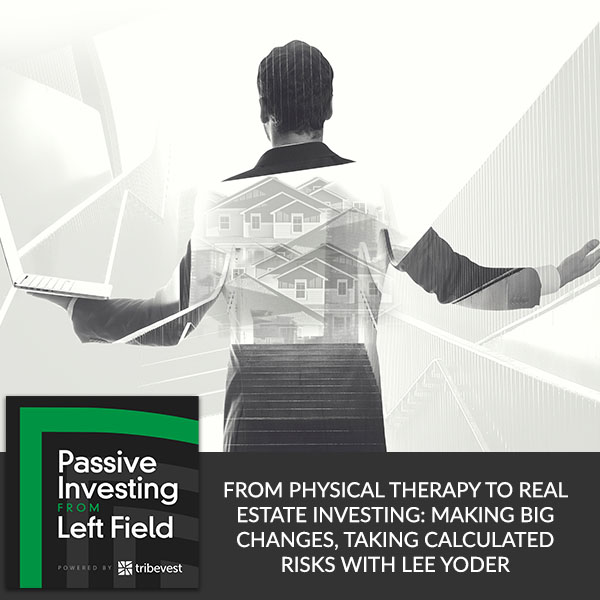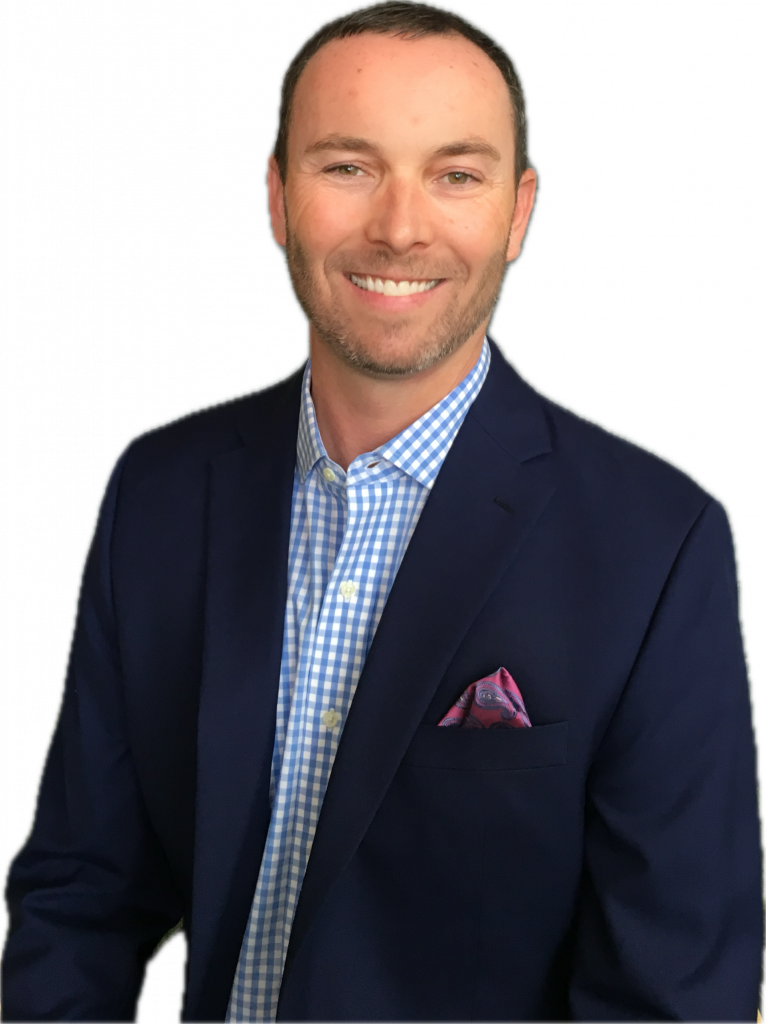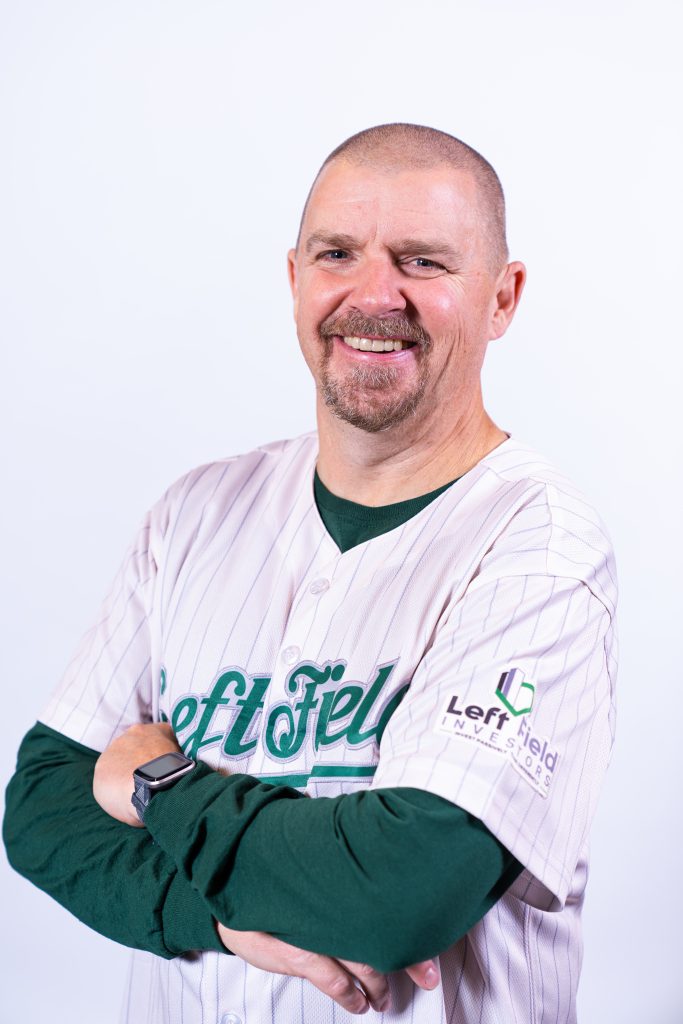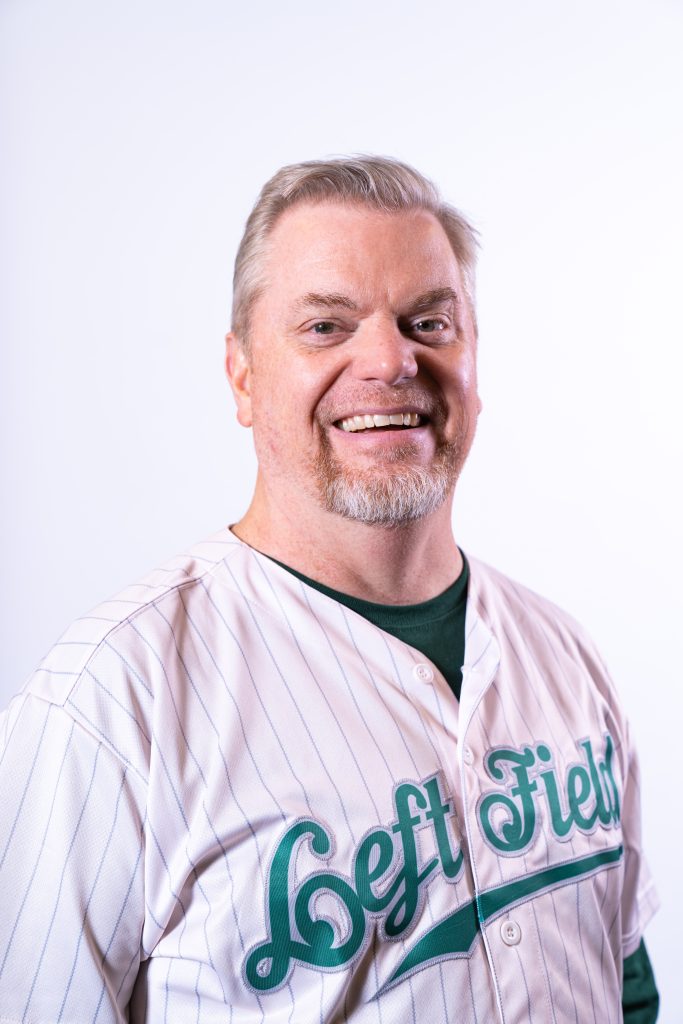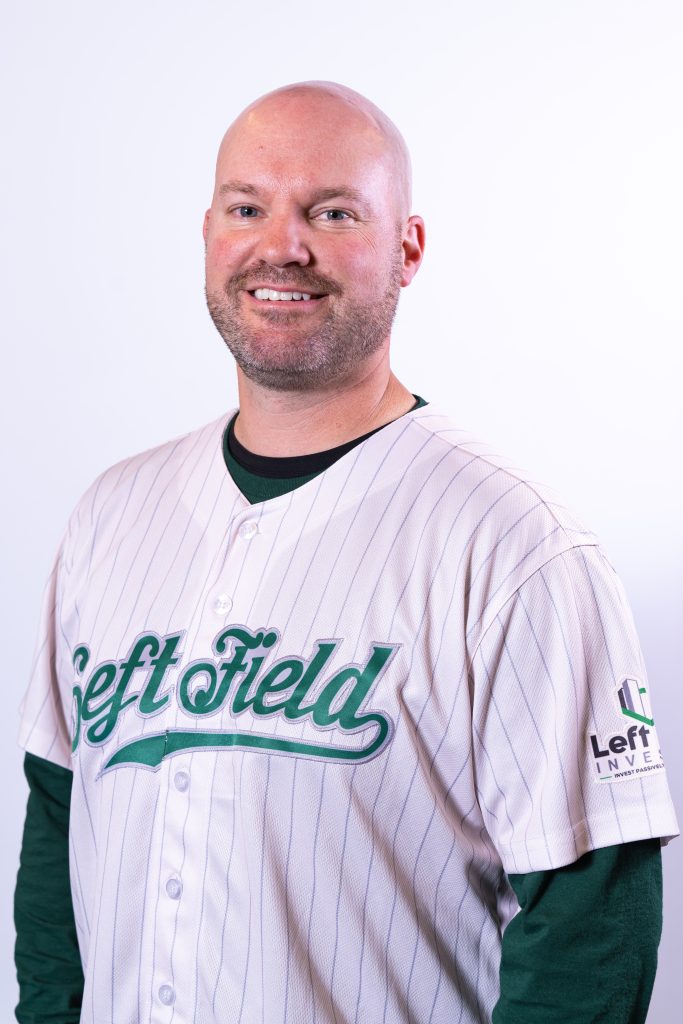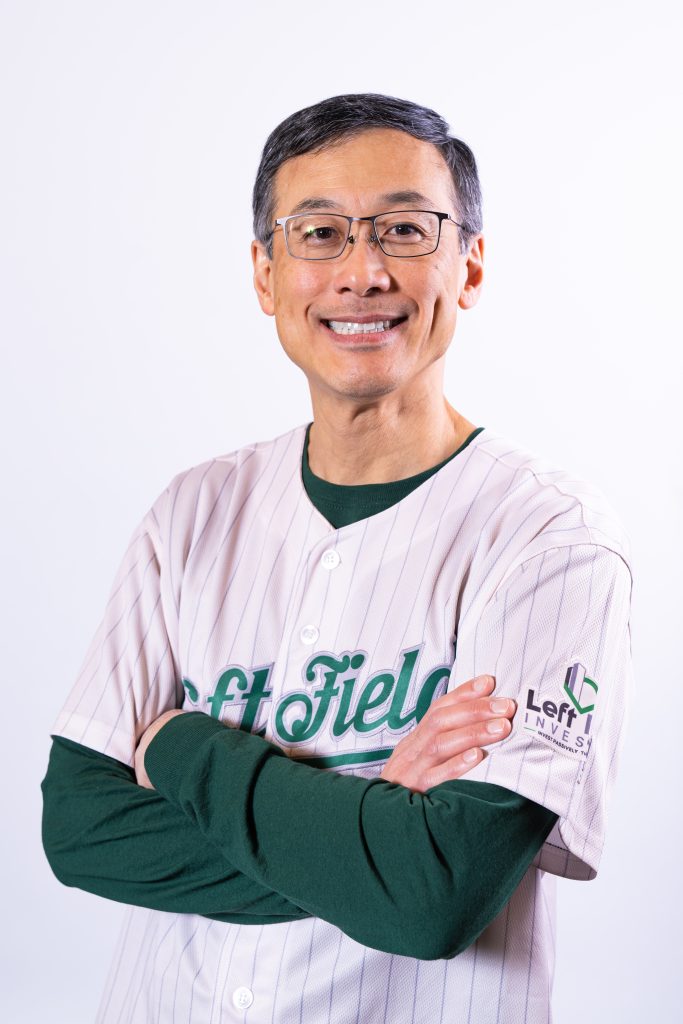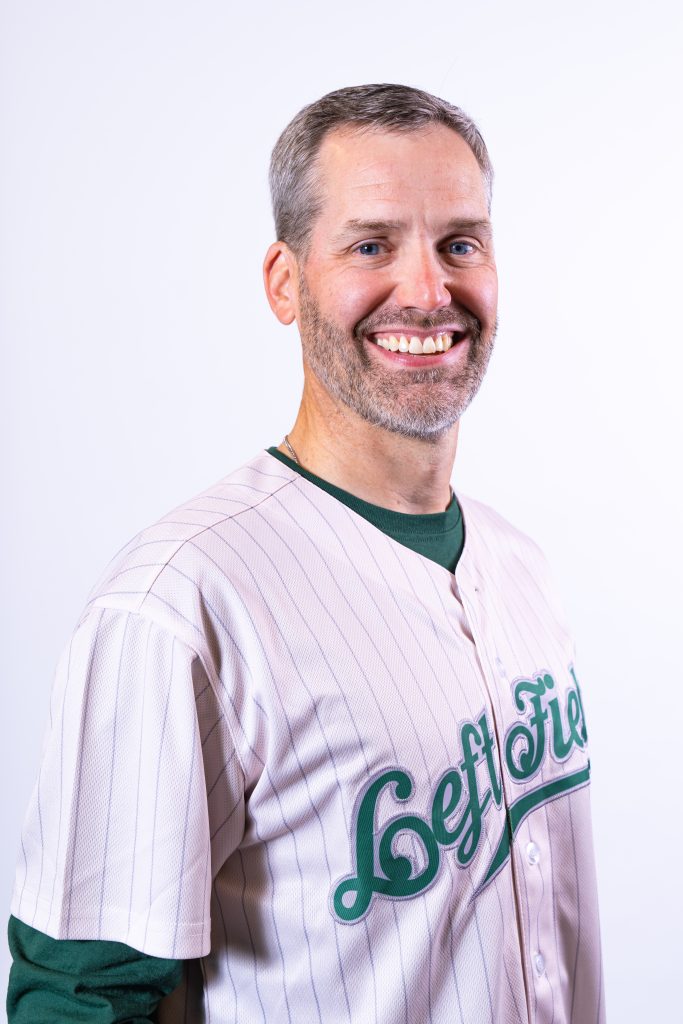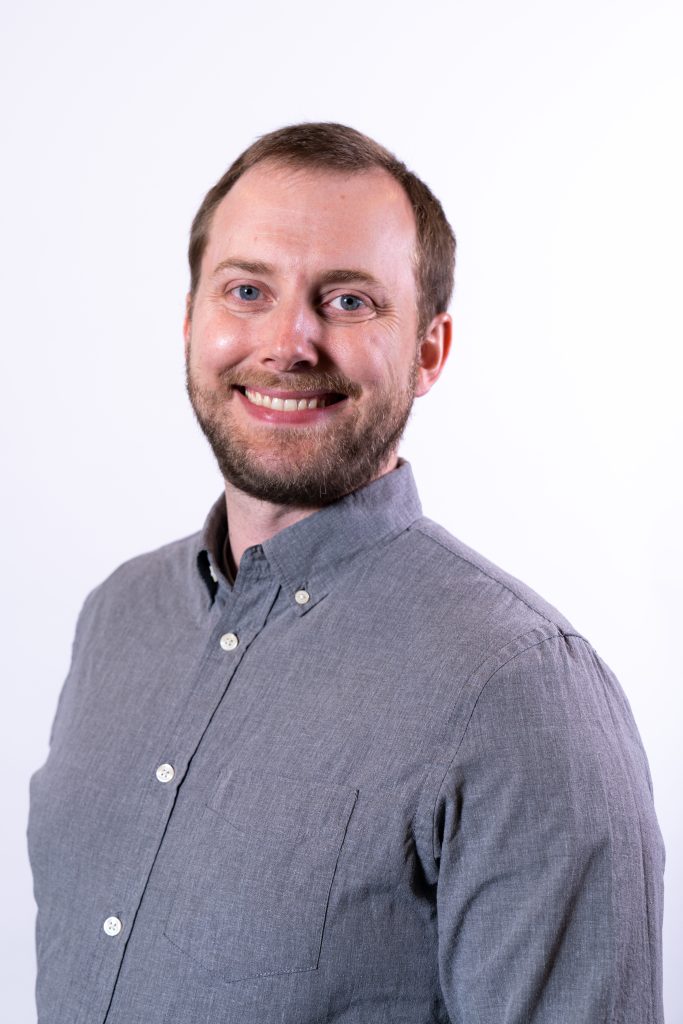
Left Field Investors do things differently, and @Lee Yoder’s story testifies to the power of Community in getting started in real estate investing. Lee, the Founder of Threefold Real Estate, joins @Jim Pfeifer to talk about his journey of taking risks and making huge career changes. He looks back on how he transitioned from a physical therapist to a real estate syndicator. His story is all about accepting and letting go of what was not for him, and pursuing what truly makes him feel fulfilled. He shares his experiences with taking on big risks in his career and his perspective on assessing them. Lee also touches on financial coaches, lending strategies, real estate markets, and more.
—
Listen to the podcast here
From Physical Therapy to Real Estate Investing: Making Big Changes, Taking Calculated Risks with Lee Yoder
I am excited to have Lee Yoder with us. He is a former physical therapist and is the Founder of Threefold Real Estate, focusing on larger apartment building syndications in Southwest Ohio. He is also the host of the Threefold Real Estate Investing Podcast. Lee, welcome to the show.
It’s an honor to be here. Thanks for having me.
It’s great to have you. Southwest Ohio is your focus but we will get into that. The first question I always ask is this. Can you give us your journey? How did you get interested in finance, specifically real estate? What took you from, “I’m interested in real estate,” to, “I’m going to be a real estate syndicator and buy large apartment buildings?”
I like telling the story because it’s pretty relatable. I didn’t do anything special. It was a little bit later. I was still relatively young but I went to college for seven years to be a physical therapist. I had to get my Doctorate in Physical Therapy. I came out, started doing that, and enjoyed it to some degree but I was doing outpatient therapy.
Once you get off work, if you go to the therapy, I’d be there in the clinic. It wasn’t a great schedule for my family and that’s a big part of my story. I want to design my work in my life and I want to design our work and life around our family, not the opposite if we can. One year in, I decided to look into doing home health physical therapy. I started doing that. That was an awesome schedule because now I’m making my own schedule.
My patients come to my phone and I can schedule whenever works for me and them. Great schedule but I got bored quickly. It wasn’t challenging, so it wasn’t exciting or fulfilling for me. The company I was with by accident didn’t do as much research as I should have. It was a staffing company and I came on. I was a contract PT with them but I ended up coming to the office and becoming the clinical director. Pretty soon, I was doing no physical and I was more like a director of operations.
I was loving that. This was an awesome startup staffing company. It’s now blown up like a $2 billion company but I was there in the early days. I was helping them build a division. Now I’m getting an idea of not doing any physical therapy. I’m not missing it at all. I’m enjoying the business, building, and feeling this entrepreneurial startup journey.
I was starting then to realize, “God created me for something different. Maybe I wasted seven years of going to college. It’s going to be something else.” I was climbing the corporate ladder doing this stuff and enjoying a lot of it, also it felt like, “I don’t want to be an employee either.” I feel like there are something a little bit different, so start going down the rabbit hole. I read Rich Dad Poor Dad like so many people and the light went off for me.

It wasn’t just real estate, although it was real estate. My dad’s in construction. I did construction in the summers during college and for some reason. It was about getting out and doing my own thing. I feel like that’s what Robert Kiyosaki does. He’s like, “There is this whole other game that nobody taught you but the wealthy people play it. If you want to play a different game, then here’s what it looks like.”
That spoke to me. I started thinking a lot about that and I ended up deciding to leave this corporate job. I took about a 30% pay cut and went back to doing home health physical therapy, which if you remember, I wasn’t passionate about. It wasn’t a long-term thing for me but I knew that with that, I would have the flexibility and the capacity to do real estate on the side and start a real estate side hustle.
I switched jobs, back to PT at the end of 2016. By the end of 2017, we got a flip. In 2018, we did a duplex. In 2019, we bought a 16-unit, a-10 unit, and an 8-unit. In 2020, I sold all three of those because the market went straight up for us. We were able to make a bunch and give us this huge cushion runway. At the end of 2020, I quit my W-2 and in 2021, I started syndicating mid to bigger-size apartment buildings full-time.
That’s a great story. You spent seven years in college. So did I but I didn’t get a doctorate. That’s a different story. Talk a little bit more about the courage it takes. You put seven years into something, then you get the job. It’s not what you thought it was. How do you get the courage to be like, “I’m done. I’m going to leave what I trained for and go do something else that I don’t even know if I’m good at?” You flipped a home and you did some small stuff but that’s a huge risk. It’s great that you did it but can you talk about your thought process there and how you figured out, “I’m going to make the leap?”
It’s not for everybody. I am a risk taker. My wife is not, so we have both sides. That was a journey that God took us through and coming together. The way I looked at it, I didn’t know how it was going to turn out. I did start into it and again, that’s what I would encourage people to do. A buddy of mine encouraged me. He goes, “How can you get more flexible in your job? How can you get more where you can jump into real estate but on the side and try it out?”
That was very helpful to start building some momentum and to build some confidence. The other thing that was helpful is a network. That’s what it’s all about for you folks at Left Field and that’s more on the passive side. For me, being around other people, doing it, tuning in to shows like yours, you gained confidence because you see other people who took a similar path and did what you did. It’s just that they’ve been doing it for 6 or 8 years longer and so, they’re 6 or 8 steps beyond you. I felt like, “If I keep doing it, I’ll get there too.”
The final thing I’ll say is, “What’s the worst-case scenario?” The worst-case scenario was it doesn’t work. Maybe I bought a few multifamily, so I own those but it’s not what I thought it would be. The cashflow’s not there and I have to go back and be a PT. I can always do that. I can still do that. I still have my PT license. Sometimes people mess that part up where their worst-case scenario is much worse than a true worst-case scenario.
The worst-case scenario is, “I could die tomorrow,” but what’s a decent percentage of happening? Maybe this doesn’t work out and I go back to being in a PT. I’m no worse for it. I own some buildings at least and they’re going to appreciate it. We’re going to pay down debt and all that. That’s helpful is to think about what the worst-case scenario is. For most people, it’s probably you go back to the job that you were doing before.
That’s a great perspective. Being in a specialized field like PT, it has a little bit more flexibility because you could go back. It’s not like you lose your status or your space. You might have to do a little bit of training but still, it’s great that you took the courage and did it. A lot of Left Field investors are doing it in a different way because they’re passive investors who are trying to get income so they can make the W-2 optional or quit it entirely. Looking at people like you who’ve done that, although not the same because you’re going into active, it’s helpful for our community to see that.
I agree. Doing it active and doing it as a job did allow me to quit my W-2 quicker but put a lot more risk there and a lot more time. The main thing for me was I wasn’t passionate about being a physical therapist. I didn’t like doing that and I became passionate about doing real estate actively. Most people out there are not in that situation. Most people enjoy their job to some degree and would like to have more freedom, maybe a little bit more to not have to grind so hard. That’s where passive investing comes in. You don’t have to take a huge risk.
As I said, I’m a risk taker and I wanted to do it full-time. Most people don’t, so you just a little bit of a risk. The reward’s going to be a little bit better but you keep your job, you take a little bit of risk, and you start building that up. Suddenly, maybe you have some extra money for sending your kids to private school. Maybe you have some extra money for some game-changing vacations for the family. Maybe mom or dad can work part-time. It can do so much for you even passively.
[bctt tweet=”Most people don’t want to be a full-time risk-taker. But with little risk come little reward, and taking greater risks give chances for bigger rewards.” via=”no”]
You got into real estate and syndicating. You have a coach now. Is it a real estate-specific coach or is it more of a run-a-business coach? Can you talk about that? Also, how do you find someone like that? How do you make the decision? Usually, there are significant costs. There’s always at a point where you’re just a startup. Every penny matters a lot more than it probably will in 5 or 10 years when you’re more established. How did you make that decision? How did you decide that, “This cost is worth it?”
That’s how I felt early on. It was like, “I’m not making money at this, so I’m not going to dish a bunch of money out.” I would start at your local REIA. In Cincinnati, we have a great REIA, Real Estate Investment Association. There was a guy leading an apartment focus group. He became our first mentor and he was free. The REIA costs $275 per year. They have multiple meetings every week.
This apartment focus group was every month. The guy leading ended up being my first mentor. I didn’t pay him anything extra. He was teaching us during that focus group how to underwrite properties. I ended up giving him 10% of my first deal because he had helped me so much. I wanted him to continue helping me, so I did end up paying him but not until I made a bunch of money, too, when we sold the property.
I was happy to do so. That’s where I would start. Your group is where I send everybody that wants to start and is interested as a passive investor. It’s very affordable compared to so many other options. I got into a mastermind with my coach now. He led a mastermind. It was pretty affordable, much less than most of the coaching programs out there that I was looking at. He’s all the above for me. He is an apartment syndicator, so he’s teaching me the multifamily business in buying and underwriting but he’s also built a business around it and that’s what I want to do. He’s my mentor, coach, and all the above for me.
You’re fortunate to find somebody but it’s not like that person ended up ringing your doorbell and saying, “Can I help you?” You have to actively go out and put yourself in places where you can run into these people at a REIA or a conference. That’s what Left Field investors is. It’s a network and it is important to have a quality network. One of the things I’ve heard you say is, “People should invest in apartments passively. It might be a better option for most people to do it passively than to own and operate.” Can you talk about why passive is such a good option, especially for most W-2 workers?
If you are the one buying a property, you’re finding the property, getting the loan, signing on the loan and even if you install a property management company, they’re calling you with big issues. You will not be passive. It doesn’t matter how easy it is and you are on my show. I appreciate you coming on and you had a lot of color around this and a story around this but you’re never going to be passive.
There are always going to be stuff to do. There are always going to be headaches. A lot of people get into real estate that way and realize, “I don’t want another job.” Again, for me, I did. I did want another job. I wanted to do real estate full-time. I love it. I want to keep doing it full-time. Most people do not. Most people either have a job they like or they’re trying to get out of their job and retire and not have a job. They don’t want another job.
If you don’t want another job, don’t go buy properties yourself. Let somebody else do all that then use a group like Left Field Investors to find out which guys and girls are doing it well and give them your hard-earned money so that they can make money on your money. Let your money work for you. Don’t find another way to trade your time for money. Real estate investing is maybe the best passive investment people can make when compared to the stock market or anything like that. When you get into syndication for instance of an apartment building, you’re going to get paid now.
There might be some delay but you should be getting distributions monthly or quarterly, so you’re making extra money. Again, back to my example, if a dad or mom does that, maybe they can pull back to part-time. Maybe they can send their kids to private school, whereas their income alone doesn’t allow them to do that.
It pays you now but you’re also still billing that nest egg. You’re gaining equity through that investment and someday, there is going to be a big payday and you can do that. You can keep doing it again and again and you’re building up wealth for your family for down the road but you’re also getting paid now, so it can change your life. It’s probably minimal when you get started but in meaningful ways. It’s going to change your life in huge ways down the road if you keep reinvesting and building a massive nest egg. Also, it’s something that’s going to spit off income in a big way in the future.
That’s well said. We did talk about this on your show. If you want to check that out, go to the Threefold Real Estate Investing. What you said is it’s active. Even if you call it passive, you own real estate that isn’t through syndication where someone else is doing all the work. I called it passive for years but it was active because I was working in it all the time and I did not like it. Southwest Ohio is where you are. Everyone knows all the great deals are in Phoenix, Dallas, and Houston. There might be a few in Alabama. There are some in Atlanta. Talk to me about Southwest Ohio. I’m from Ohio. What towns are in Southwest Ohio? Why are you buying stuff there?
Come on to Cincinnati Bengals. We should have been in the Super Bowl. That’s where I’m at, Cincinnati, Ohio, the home of Joe Burrow and the Bengals. North is a little bit smaller town called Dayton. You’re right. It’s not a high-growth area. I won’t pretend like it is. Columbus is but probably still doesn’t compete with some of the coastal cities and hot cities and the smile states, those Sunbelt states and all that.
Like you said, everybody knows all the deals are in Phoenix and Austin. I don’t know if you’re tracking some of the data but there are a ton of development going on in those cities as well. For the past couple of years, I’ve looked at those and I’ve said, “I’m not going to argue with the population growth, with the job growth. Although, I would love to have all that in Cincinnati,” but everybody knows that.
The prices reflect that. It’s like saying, “Why would you go buy a small company that’s getting started and is going to try to compete with Amazon? Why don’t you just buy Amazon?” Look at the stock and the price. Look at the price-earnings ratio. There is a price that doesn’t make sense anymore. I don’t mean to bash those cities and say the syndicators operating there are doing the wrong thing. I’m just saying, “I could go to Phoenix and pay $350,000 per unit and maybe that makes sense or I can pay $60,000 to $100,000 here in Cincinnati,” and that might make sense.
It’s priced in. If you go to those cities, there are better growth and all that but it’s priced in so you’re going to pay for it. The main reason I’m here operating in Cincinnati is because I live here. I like being able to drive to our properties. I like being very hands-on. Our property management company is based out of Cincinnati. They manage 12,000 to 14,000 units and they’re regional but they’re based here. I can drive into the main office. I feel like it allows me to operate well. I know this area. I’ve grown up here and all that. We want to expand eventually but I like being hands-on. That’s why we invest here.

There is plenty to be said for the Midwest. If you look at the rent growth over the past months, what cities are leading? It’s none of the cities you mentioned. It’s Indianapolis and Cincinnati. The thing is, in this time in the market cycle, you might be better off being in the cities, in the areas of the country like the Midwest that didn’t shoot up so high because the ones that shoot up so high when the market turns fall the farthest too. In the Midwest, we don’t go up as high, but we also don’t go down as far.
That’s completely true. I like finding these other markets because I have a ton of investments in the smile markets and where everybody is going. When I find somebody that has a focus somewhere else, I get pretty excited, especially when it’s someone who is local to that location and knows the market. You get huge advantages. That’s one of the things when I talk to people and they’re saying, “If you’re an active investor, you get better returns than passive.”
What I say, “Maybe.” I didn’t, but the reason was that I didn’t have expertise in a certain market that others did not have. That’s the difference. You have some expertise in that market that others don’t have, so you can go there and be successful where when Phoenix runs dry, those guys aren’t going to be able to jump into Cincinnati and get going because they won’t have that local expertise.
I agree with that. It’s a big deal when it comes to lending. We get local lending and they only want to lend to local people. We get great financing from the credit unions here, which helps our returns and they want to lend to people that are local and right there and come into the bank and meet with them. That’s one small example but I agree with you. There are a lot of benefits.
Let’s dig into lending because that’s the big thing now. There aren’t as many deals or some deals are in trouble because of the instability of the cost. You don’t know what your interest rate is going to be and it’s hard to run a business when the costs are increasing so much. What are you seeing as far as interest rates? How is that affecting your business?
The biggest effect is it has been a lot harder to purchase. We haven’t take anything down the second half of 2022. We saw it. We had a front-row seat into the rise in interest rates at the beginning of 2022 and how they tightened up our bank. This is the third loan that we’ve done with them. We were at 3.875% interest. They raised us 0.5% a week before we closed and took $180,000 of our proceeds and put it over in account for a year. We had to raise a little bit more for that deal.
This was our third loan. We were going to do the exact same thing and all of a sudden, everything changed because interest rates shot up. That 0.5% rise on that deal was, for some people, smaller $6 million, 95-unit deal. Just 0.5% rise in interest took $22,000 a year that we thought we were going to share with our investors and now, it’s going to the bank to pay extra interest.
Interest rates went up 2.5%, 3%, and 3.5% percent depending on what product you get. You can imagine. We’re talking about $100,000 or $120,000. That’s the biggest difference. We wouldn’t pay what we paid for that property with interest rates where they are. Are all other things equal? We would not pay it because we are making $120,000 less per year instead of $20,000 less. We can’t do it.
Our offer comes way down. Our sellers are willing to accept that offer and a lot of cases, no. That’s why there are not near as many deals getting done. That’s been the biggest impact. fortunately for us, I just not ventured into the variable rates and the bridge loans. I don’t want to speak against those because I don’t have expertise there. Even my coach says, “There’s a place for those.” Fortunately, we didn’t do that, so we got interest rates that are fixed for five years. Our worst one was that last one that we did at 4.375%. I’m still pretty happy with that. That’s fixed for five years.
Our other ones are lower than that and they’re fixed for five years. We’ll need to the refunds in our sales. We’re in a good spot now. I know others are not but I do think interest rates are going to come down over 2024. We’re happy that we got the fixed rate debt and we’re not in stress with our current properties but it is making it harder to purchase because it’s increasing the gap between sellers and buyers.
[bctt tweet=”The biggest effect of interest rates and instability of cost is that properties become a lot harder to purchase. They increase the gap between sellers and buyers.” via=”no”]
Most operators would be thrilled to get 4.375% now.
I would now. I would take it for sure.
A lot of operators are holding distributions back or even making optional but capital calls. A capital call used to be the death sentence but now, there are some creative capital calls that may or may not be optional. What should investors think of those operators that are needing to hold distributions or make capital calls because it’s happening. They’re being conservative but should we be worried? What would think about an operator that’s taking those actions?
I wouldn’t be worried about holding distributions, Jim. Maybe it would make me a little bit worried or curious of what’s going on but sometimes, that can be the best thing to do. You want transparency. That’s the biggest thing. As long as your operators are letting you know what’s going on, answering any questions that you have, pulling the curtain aside, and showing you everything, and here’s why. We’ve never done a capital call. I hope we never have to.
[bctt tweet=”Transparency is the biggest thing. As long as operators are showing you what is going on, answering any questions you have, and showing you everything, you are in good hands.” via=”no”]
Little things have come up and our company has stepped in for things like that. We would rather not do a capital call. If that came up personally and I’ve heard other sponsors talk about this and I agree with them. I would want to know what that money’s going toward if there is an issue that can be solved with a capital call and then you feel very good about where you’ll be on the other side of the capital call. That’s something I could get behind as a passive investor.
We’re bleeding money, so we need the capital call to make our next few mortgage payments, then we’ll see where we’re at after that. I would’ve trouble with that. That feels like throwing good money after bad, unfortunately. I would want to know the plan. It’s critical to communicate. We’re trying to do even more of that because even if we’re not doing capital and not withholding distributions, people are a little more worried because things are more unclear and people have lost 20% in the stock market and it doesn’t feel as good.
I would want good communication and good transparency. No one thought interest rates would double, even the Fed, government, and economists. Again, I don’t totally fault some of the people that are in some of these loans that are difficult. Now, if you didn’t have a rate cap and things like that, there are some mistakes that were made. For some people, maybe withholding distributions or even a capital call can be the right thing to do to get through a difficult time. I would want to know that there is a good plan that I feel good about on the other side of that personally.
That’s great advice because you mentioned it. There are two scenarios. One, everything is running to pro forma, the operations are fine and everything’s great, except your interest expense went from X to 3X. That’s the problem. If the capital call is to fill that gap and the property’s operating okay, then maybe that’s okay.
If it’s already not performing to pro forma and they’re doing a capital call and blaming it on interest rates, I don’t want to participate in that one. That’s where you have a problem. How does an investor figure out what questions should we ask an operator who may be going for a capital call? Also, what questions should we ask for our investments to make sure that they are looking at everything and understanding the new environment?
On the capital coal side or withholding distributions, I would want to see the income. I would want to compare it to the budget. You mentioned the pro forma, so, “You folks said we were going to be able to do this. Go back to that. Are we hitting that? We’re not hitting the rents that you said we would.”
Again, that’s the second scenario that you laid out. If they’re hitting the performer rent, they’re achieving the rents that they thought they would. Our expenses are right in line. I want to look at income and expenses. That all looks good. That’s right where you said it was going to be. It’s just in this line item down here, this interest expense that went nuts on us.
The plan is because we’re hitting pro forma and we’re doing well, we’re going to wait until the end of 2023 and we’re going to refinance because we already have a lot of equity. If there are a plan, everything looks good except that interest expense then that’s what I’m going to feel good. Those are the questions I’d be asking. How are we doing with income compared to what you guys projected? Is that trending in the right direction too?
I would look like, “Maybe it looked good.” Almost all PNLs looked good in 2022, so I would want to see how we’re doing the past few months. That’s important too. If that’s all looking good and it’s that interest expense, I’d feel okay. As far as going forward, the right question is, “How are you going to handle this?”
We didn’t know it was going to happen but now it has happened. Interest rates could still go up. Fed says they’re not done. What things are you doing to be prepared? Again, if you’re doing the variable rates, I would want to see a cap because then you know your worst-case scenario. That’s the thing. I want to know my worst-case scenario. If you get fixed-rate debt, you know your worst-case scenario. It’s fixed for five years. The worst-case scenario is in five years, you go get an interest rate and it might be higher but you want to know your worst-case scenario.
I would want to see a lot of reserves. We’ve learned that deal by deal. It’s something that I’m even better at now than when we first started syndicating where it feels like you can never have too much reserves. Now it hurts your return. That’s why syndicates may not want to do it but you are going to be happier if you take a 15% IRR deal over a 16% IRR deal when that investor has $200,000 more in reserves.

I’m confident that’s the syndicator you want to go with. If he didn’t hold $200,000 more in reserves than the other guy, he would have a 16% IRR. I would choose some security and some guys and girls that have the forethought to put more money away and more things in place, pay for the rate caps, and things like that because now you have a better idea of your worst-case scenario and it’s looking better than the risk of it might be higher return but it might be a worst-case scenario.
I agree with that. Part of it is the expectations. In the last many years, people have made money hand over fist and they forget that it can’t always go up. I try to remind people that are in our community to invest in real estate, “Let’s say we’re investing in ten deals. Chances are one of them is not going to perform to pro forma at least. Now, in this economy maybe two. It’s not just up forever like it used to be.”
“If you don’t believe me and you still have money in the stock market, go look at that and how happy are you with that.” I don’t want to accept a non-performing asset or an operator who didn’t do a very good job but if they got hit by a surprise, like a pandemic, interest rates tripling or doubling in six months, as long as their operation is still going to plan as much as it can be, then I have a little bit more forgiveness there.
I’m right with you. Things are going to happen. A lot of people when they’re vetting a sponsor, they want to know. They will say, “Tell me about a time things didn’t go well,” because you can learn a lot about somebody. I’ll go back to what I was saying. It’s communication. That’s where Left Field Investors comes in, too. You might have someone that invested with somebody and they might say, “They did withhold distributions for a couple of quarters but they were upfront about it. They communicated it to us. They let us know why.”
You almost gained more respect for people when you do go through a hard time and they handle it so well because like you just said, there are going to be hard times. We found that out things don’t go up forever. There are going to be hard times. You do want to know that when a sponsor goes through a difficult time, they’re going to handle it well.

They’re going to communicate. They’re going to be transparent because it’s going to happen. As you said, not everything’s going to perform. Even the best sponsors are going to have deals that go sideways a little bit but do they have good integrity around that? Did they communicate well? Do they fight through it or get through it? I would gain even more confidence if they did.
You talk about vetting sponsors and that question is great. Tell me about a time when a deal didn’t go well. Over the last few years, people are racking their brains like, “I haven’t had that,” but now at least this situation in the next couple of years, we’re going to be able to ask people that question. They will all have a good answer.
Talk a little bit about vetting a sponsor. Aside from that one question which I love. How do we vet a sponsor? How do we know Lee is the right guy to invest with? Especially given that you’re newer, I’m always looking for someone with experience but I also don’t want to miss on the new guy or gal coming up. How do we, as Left Field Investors or as passive investors, analyze or vet a sponsor? How do we vet someone like you who’s newer to the game?
The track record is big and that’s where somebody newer to the game doesn’t have the same track record. I’ll say that as a newer sponsor. Track record is important. Look at the whole team. Is that sponsor working with a property management company? If it’s a sponsor that’s been in the game for a while but they brought all property management in-house and they’ve been doing that for six months, they have a lot of experience being a sponsor but not a lot of experience being a property management company versus us.
We’re working with a property management company that’s been in business for 80 years. They were using their experience to operate the property. Look at the whole team. It’s all about referrals and that’s where a group like Left Field Investors is so important. That’s why I joined the group because if I’m going to invest with other sponsors, I want to diversify through passive investments and other asset classes and real estate.
I’m not quite there yet, but I want to do that. I will never know what it’s like to invest with a sponsor that I’ve never invested with. That’s impossible. With a group like Left Field Investors, odds are somebody else in the LFI group has invested with that sponsor, so they do know what it’s like. The best thing to do is talk to that person because if you call me up, I would gladly give you some referrals.
It’s not going to be totally blind. Honestly, I don’t think I have any referrals that would say bad things about me. I don’t think anybody’s worked with me would say bad things but I’ll give you a couple of people that I’ve given to others before that are very willing to talk. They’ve said it’s okay and they have pretty good things to say about me. There might be some of the ones that like me the most.
That’s who I’ll give to you but if you find somebody in Left Field that’s investing with me and you ask them without going through me, it might be an even more candid take on it. It’s all about referrals and I think if you get them organically through a group like Left Field, I don’t think there are anything that can beat that. That’s your best way to vet a sponsor.
That’s what we landed on and we’ve talked about this before. My journey was not doing a good job. Not even vetting sponsors like, “Here’s my money,” to where I started to vet them in not a very good way. Now, we use our community. That is so powerful because trust transfers. If I trust you and you trust somebody else, then at least I feel like, “Maybe I can trust that other person because I have a relationship with Lee,” and that’s how business is done. It is so true in real estate and picking a sponsor because these are such long-term, illiquid deals out of our control and there is no way to know if it’s going to be a good deal. You got to wait until it’s done. That’s the key.
The power of the community is so important when you’re passive because you are giving up control. Doing it actively, I’m trusting myself but when you’re doing it passively, you are giving up control. You do need to take something of that control back in the beginning and that comes through your vetting process. You can’t do a better job than being in a community that’s likely invested with that sponsor before.
The last question I always ask on the show is, what is a great podcast that you’d like to listen to? We are not going to count Threefold Real Estate Investing because we know that’s a great one. Give us another good one to listen to.
I am a junkie for like macroeconomics. MACRO Voices by Erik Townsend and Patrick Ceresna is the one I’ll give. They have some of the best macroeconomists and hedge fund managers on and I like getting my news from those guys. If you’re managing billions of dollars, I trust what you say about what the Fed might do and what’s going on. That’s a passion of mine. It does pertain to my business but that’s a great show. There are others like it where you can follow the macroeconomic trends and what’s going on in the country and also the world.
I have not heard of that one, so I will check that out because I’m a podcast junkie. That’s going to the top of my listening list. Thank you very much for that. If readers want to get in touch with you, what’s the best way to do that?
I’m pretty active on LinkedIn. As I said I’m part of the Left Field Investors group, so you jump on over there on your website. That’s ThreefoldREI.com. You’re going to find me there and love to come out to the conference, so looking forward to the next one. We got a bunch of stuff over there but you can connect with us there.
Thank you so much for being on the show. It was fantastic. I learned a lot and I appreciate you being here.
Thanks. The pleasure was all mine.
—
There were lots of good stuff in that conversation with Lee. He had spent seven years in educating himself to become a physical therapist, which is fantastic but when he found out it wasn’t fulfilling and it wasn’t fitting into the life that he wanted for his family where he wanted to be family-focused, he looked for other options and he has a great fallback.
I don’t think he’s going to need it but he’s got it. It takes such courage and I admire that, “I put seven years into this, there are no way I can switch. I have to stick it out,” then they’re miserable. He found something that he loves to do. You can read it in his words. You can learn the passion that he has. He’s on his way and that’s fantastic.
He mentioned and I thought the way he said it was interesting. It’s a whole different game that wealthy people are playing. When he realized that, he wanted to get in that game. That doesn’t mean we’re all out here to make as much money as we can and go crazy with it. It means we’re trying to build wealth for our family so we can have the lifestyle and time freedom or financial freedom. It’s realizing that wealthy people are playing a different game makes a huge difference because then you can figure out, “How do I get into that game?” You can start playing that game as well.
We had a little bit of a conversation about active investing and how I was thinking it was passive. Active investing is a job, no matter what you call it. You can call it passive investing but it’s a job if you own the property. It’s something to think about and that’s why I am super happy to be a passive investor and know people like Lee who can manage the properties and I can invest in them. That’s the approach I prefer.
Southwest Ohio, I know Cincinnati and Dayton, those are great towns. I owned the property in Dayton a while back. It is crucial to have local expertise like that. Everyone’s in the same smile states because of population growth and all that but Lee made some pretty good points about why you might want to have some investments in these targeted areas where experts are living and doing their thing.
It doesn’t always have to be those same smile states. Whenever I find somebody doing something a little bit different in a different spot, I’m interested and I’m going to look into it. That’s the thing with Lee. He mentioned it also when you’re talking about distributions, holding distributions, capital calls, talking about bedding, sponsors, and all of that, there is one thing that is important above all else, I believe, and that’s communication.
If the sponsor is not communicating with you, you’re not going to be happy. You’re not going to know what’s going on. Even if there are bad news, as long as they bring it out and share it with you in a comprehensive manner, do it often, and let you know even in the bad times, “Here’s what’s coming,” it makes all the difference in the world. I thought that was a great focus that he has. I appreciated Lee being on. He’s starting out, so I’m going to watch him and see what he’s doing and we appreciate him. That’s it for this time. We’ll see you next time.
Important Links
- Threefold Real Estate
- Threefold Real Estate Investing Podcast
- Threefold Real Estate Investing – past episode with Jim Pfeifer
- Rich Dad Poor Dad
- MACRO Voices
- LinkedIn – Lee Yoder
About Lee Yoder
 Lee was practicing physical therapist when he realized his true passion was building his own business and investing in real estate. He took this passion and considerable action to quickly build a portfolio with several small apartment buildings. He was able to quickly reposition this portfolio, bring it full cycle, quit his W2 as a physical therapist, and provide an incredible return for his investors. Today, Lee is focused on syndicating larger apartment buildings. He is the founder and visionary behind Threefold Real Estate Investing, and he’s committed to forging a path that will generate incredible wealth and opportunity for all involved.
Lee was practicing physical therapist when he realized his true passion was building his own business and investing in real estate. He took this passion and considerable action to quickly build a portfolio with several small apartment buildings. He was able to quickly reposition this portfolio, bring it full cycle, quit his W2 as a physical therapist, and provide an incredible return for his investors. Today, Lee is focused on syndicating larger apartment buildings. He is the founder and visionary behind Threefold Real Estate Investing, and he’s committed to forging a path that will generate incredible wealth and opportunity for all involved.
Lee also hosts a podcast, Threefold Real Estate Investing, which discusses multifamily real estate investing, while also focusing on pursing better relationships with family and a better walk with Christ.
Our sponsor, Tribevest provides the easiest way to form, fund, and manage your Investor Tribe with people you know, like, and trust. Tribevest is the Investor Tribe management platform of choice for Jim Pfeifer and the Left Field Investors’ Community.
Tribevest is a strategic partner and sponsor of Passive Investing from Left Field.

